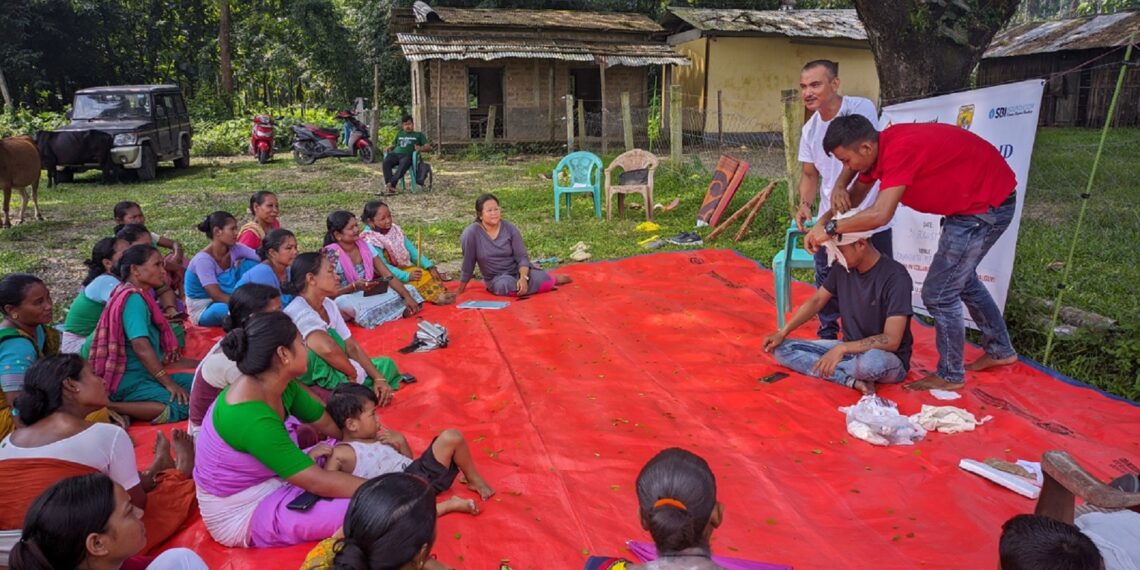GUWAHATI: To equip communities residing in human-elephant conflict (HEC) prone regions with essential skills to tackle emergency situations, a first-aid training session was held at the Hastinapur village of Baksa district recently.
Participated by over 30 villagers, a dedicated team of District Disaster Management Authority (DDMA), known as “Aapda Mitra”, demonstrated various first-aid techniques applicable to diverse emergency situations.
The team, led by Ritupon Kalita, included resource persons such as Gopal Krishna Das, Sachin Das, Utpal Rabha, and Sanjit Daimari, with Dalim Kalita overseeing the entire training program.
Organisedby Aaranyak, a biodiversity conservation organisation in association of DDMA, the training aimed at enhancing the preparedness of villagers by stressing on the importance of first-aid treatment, especially in cases of accidental injuries resulting from HEC incidents.
In addition to these efforts, Aaranyak’s team met with members of the Elephant Conservation Network (ECN) in the Subankhata area of Baksa district and acknowledged the vital role played by its members in monitoring elephant movements and patrolling activities.
The ECN has been instrumental in reducing accidental encounters between villagers and elephants by aiding the forest department’s elephant squad. As part of their efforts, ECN members were provided with rechargeable torch lights to facilitate night patrolling.
The training initiative was initiated by Lila Karki, President of the Chaulkara Revenue Wild Protection NGO, and received support from Kishore Roy, Vice President of the same NGO, as well as Netra Paudel, President of Pub Nikashi Unnayan Samity, and Rudra Boral, Secretary of Pub Nikashi Unnayan Samity. Notably, the training also featured discussions on snakebite first-aid, led by Aaranyak’s Rubul Tanti.
The session follows similar initiatives in August at Odalguri LP School in Baksa and Nonaikhas M.E. School in Udalguri, collectively enhancing the capacity of approximately 50 community members. These training programmes received support from SBI Foundation and the US Fish and Wildlife Service.















